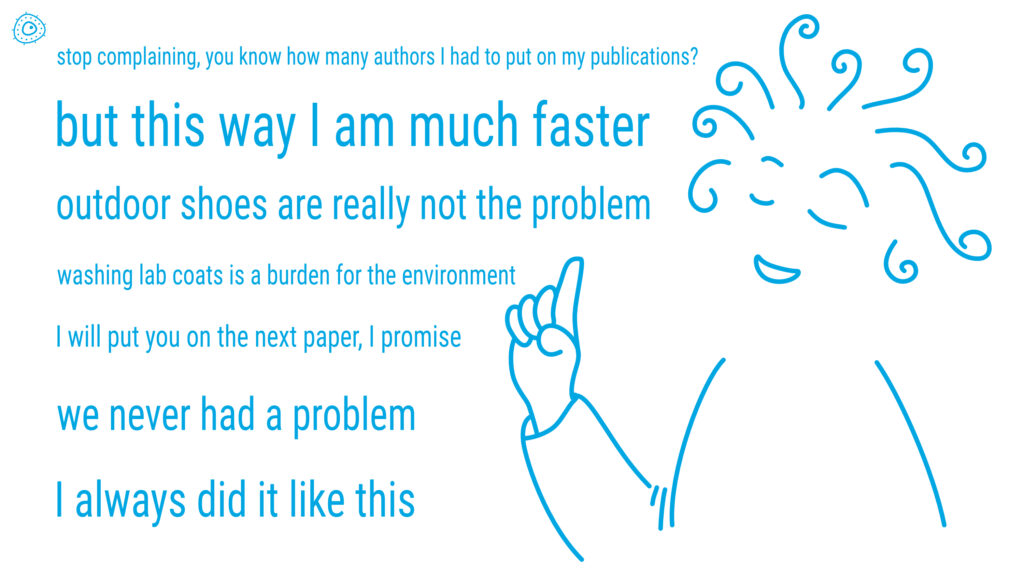
In my opinion… ☝️
☝️ In my opinion, outdoor shoes do not contribute to contaminations in the cell culture lab. 😮
☝️ In my opinion, a sterile workbench can be set up anywhere, the inside of the hood is sterile, anyway. 😮
☝️ In my opinion, wearing lab coats is overrated. 😮
No.
Sorry, but it doesn’t work that way when it comes to laboratory standards and scientific conduct. We have heard so many opinions on standard procedures that we do not want to deal with them anymore. What is our problem with opinions? 🤔
Inserting an “in my opinion …” before blurting out scientific nonsense, makes you incontestable.
How to challenge or even respond to something that is labelled to be an opinion? You can’t. As long as opinions creep around laboratories, bad practices will outlive generations of scientists. 😔
But what kind of opinions are we talking about? If you are someone who is well versed in international standards, who knows and performs good practices in the laboratory and in science, then your sound and valid opinion may one day improve and refine the current standards. 🌼
If, in contrast, someone, who has no clue about guidelines for good practices, has an opinion, that opinion is usually worth nothing. 🕳️
And strangely enough, the less grounded that opinion, the stronger it is advocated. At best. In fact, it is usually harmful to the behaviour of others working in the lab or research group, especially younger, less experienced staff and students. They get the message that as long as you have an opinion, you can conquer the world – or at least the lab.Here is our conclusion:
If your opinion is the result of overall convenience, random incidences and personal preferences, well, then we will probably choose not to discuss them with you. However, if your opinion arises from knowledge and experience, then please, share your opinion with us! We look forward to discussing it over a cup of tea with you! ☕🍪
End of story? Well, not quite. Why do people need to have an opinion devoid of knowledge? And shouldn’t we at least try to include them in our discussions? Well, over the years, we have seen that most of the time it is more effective to
👉 apply good practices and do things correctly ourselves, and
👉 inform people (who are willing to listen) and make them do it correctly, too, until you have a crowd of people who do things correctly, and then
👉 it is more likely that people with strong opinions and not much knowledge will join in and apply good practices, too. More likely than after a discussion.
Coming back to the question why people need to have strong opinions despite little knowledge.
Maybe it is exactly the lack of knowledge that makes people try to compensate with their strong opinions.
And it would explain the correlation of the greater the lack of knowledge – the stronger the opinion.
We would really like to hear about your experiences with opinions! 👀☝️
Author: asban
#reproducibility #standardization #experience #opinion #cellculture #gccp
Leave A Comment
You must be logged in to post a comment.